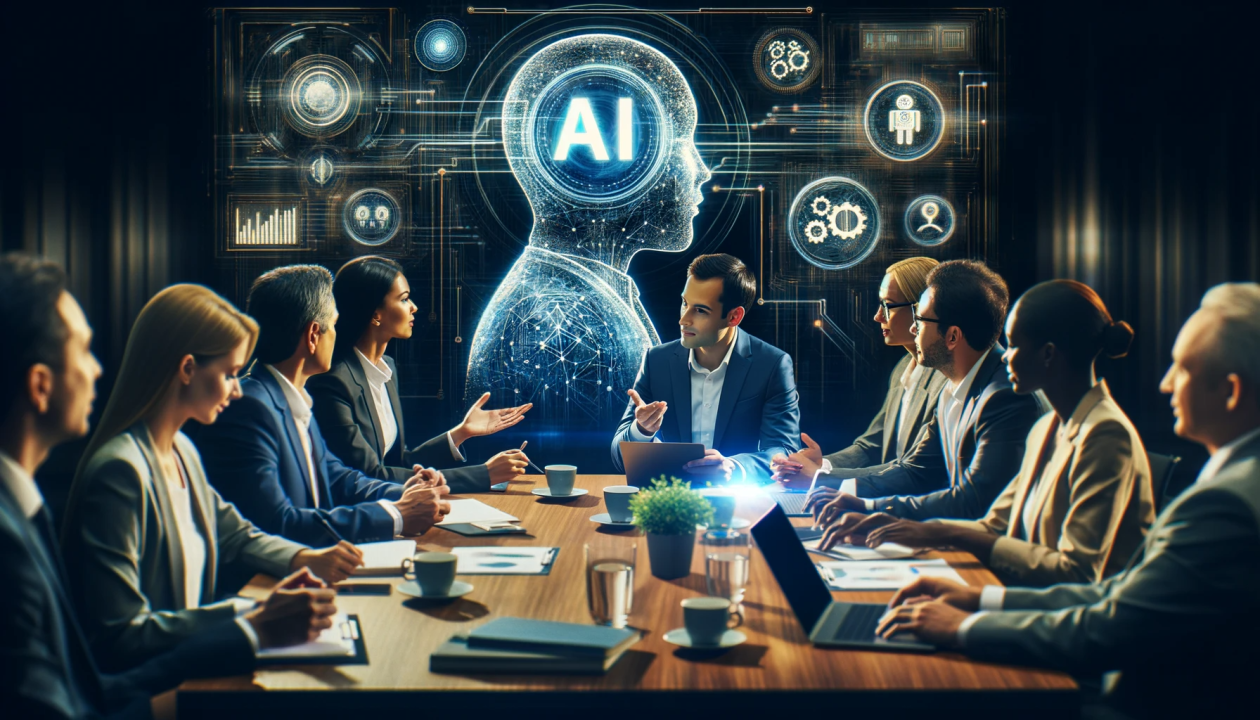As the world stands on the cusp of a transformative era led by artificial intelligence (AI), individuals and organizations alike face the dual challenge of harnessing its potential while mitigating associated anxieties. The swift evolution of AI, particularly generative AI, has ignited a spectrum of responses, from excitement about its capabilities to concerns over its impact on society, the economy, and the nature of work itself. Drawing insights from recent studies and expert opinions, this article offers a comprehensive overview of the current state of AI, its expected trajectory, and practical advice for thriving in an AI-integrated future.
Key Highlights:
- AI’s integration into various sectors ranging from healthcare to finance, promising significant efficiencies and innovations.
- The emergence of generative AI as a key driver of change across industries, notably in enhancing product development, marketing, and sales.
- Ethical considerations and the call for responsible AI development and usage to prevent bias and ensure equity.
- The role of education and continuous learning in equipping individuals with the skills needed to navigate the AI landscape.
Understanding AI’s Current and Future Impact
Recent reports, such as the one from Harvard’s School of Engineering and Applied Sciences, highlight AI’s growing influence across numerous domains, from autonomous driving and automated medical diagnoses to personalized digital interactions. This widespread adoption is attributed to AI’s enhanced capabilities in handling large data sets and executing specific tasks with remarkable efficiency.
Moreover, a McKinsey Global Survey underscores generative AI’s burgeoning role in driving competitive changes across industries. With expectations set high, industries heavily reliant on knowledge work, including technology, finance, and pharmaceuticals, are poised to witness profound disruptions and opportunities. However, the transition also introduces challenges, notably in addressing the ethical implications and ensuring equitable outcomes.
Strategizing for an AI-Driven Future
Adopting a Proactive Stance on Ethical AI Use: As AI tools become more integrated into our daily lives, the imperative for ethical considerations grows. Addressing potential biases and ensuring that AI systems operate fairly and transparently is crucial. Educational institutions and industry players must foster interdisciplinary dialogue, emphasizing the ethical dimensions of AI development and application.
Leveraging AI for Innovation, Not Just Efficiency: High-performing organizations are distinguishing themselves by using AI to create new business models and enhance the value of their existing offerings. This strategic focus on innovation over mere cost reduction is setting the stage for long-term growth and competitiveness.
Preparing the Workforce for AI Integration: The shift towards AI necessitates a corresponding evolution in workforce skills. Companies are increasingly investing in reskilling initiatives, recognizing that the future will demand a blend of technical and soft skills. Roles in data science, machine learning engineering, and AI-specific domains like prompt engineering are becoming more prevalent, underscoring the changing landscape of employment opportunities.
The journey into the AI-driven future is fraught with uncertainties, but it also brims with unparalleled potential. The keys to not just surviving but thriving in this new era lie in embracing continuous learning, advocating for ethical AI practices, and fostering innovation. As we navigate these changes, our collective resilience and adaptability will determine the richness of the opportunities AI can bring. Balancing the enthusiasm for AI’s capabilities with a cautious approach towards its ethical and societal implications will ensure that we steer this transformative technology towards enhancing human welfare and global progress.







